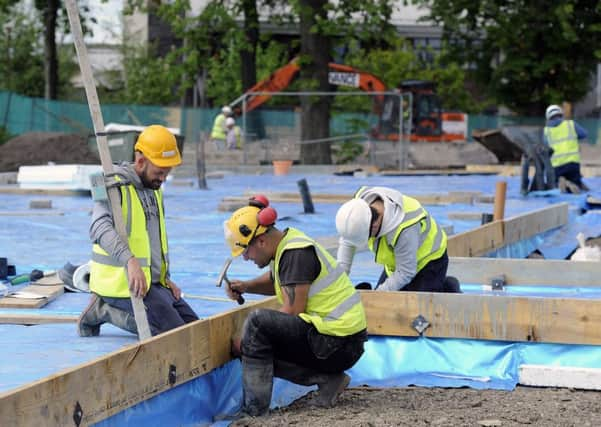Martin Flanagan: Persimmon gains from solid foundations
This article contains affiliate links. We may earn a small commission on items purchased through this article, but that does not affect our editorial judgement.


It seems rather fanciful, an unfeasible marriage of the macro and practical everyday life. If an individual or a couple delay such a home purchase surely it is likely to be due to something more tangible: the inability to get a mortgage, redundancy, a sharp hike in interest rates, illness etc.
But my contacts in the sector say it has been a real fear among housebuilders that the threat from Brexit would cast a long shadow. Well, Persmimmon, one of Britain’s biggest housebuilders, cheered the sector yesterday with a positive trading update before next month’s annual results.
Advertisement
Hide AdAdvertisement
Hide AdMost importantly, the update showed an improving sales picture at Persimmon in the second half of 2016 – after the June Brexit vote.
The group reported a 10 per cent surge in sales in the final six months of last year as it sold nearly 700 more homes than in the opening six months of 2016. In other words, good customer demand meant the company could brush off Brexit and put the “business as normal” sign up.
Persimmon also revealed that, over the whole of last year, legally completed sales were up 4 per cent, while group revenues lifted 8 per cent to £3.1 billion.
The company was rewarded with a 7 per cent jump in its share price, and the cheer spread to rivals such as Taylor Wimpey, whose shares rose 5 per cent, and Barratt Developments, up almost 3 per cent.
Perhaps I am guilty of understating the potential impact on the UK housing market of the Brexit vote, and that the threat has not passed.
But Persimmon’s numbers should certainly stiffen the sinews of the sector by showing that house sales certainly did not fall off a cliff after the vote on EU membership. With the expected slowdown in UK economic growth this year we may see some fluctuations in performance in the housebuilding sector, but the resilience of Persimmon indicates that Brexit is unlikely to be the key factor.
